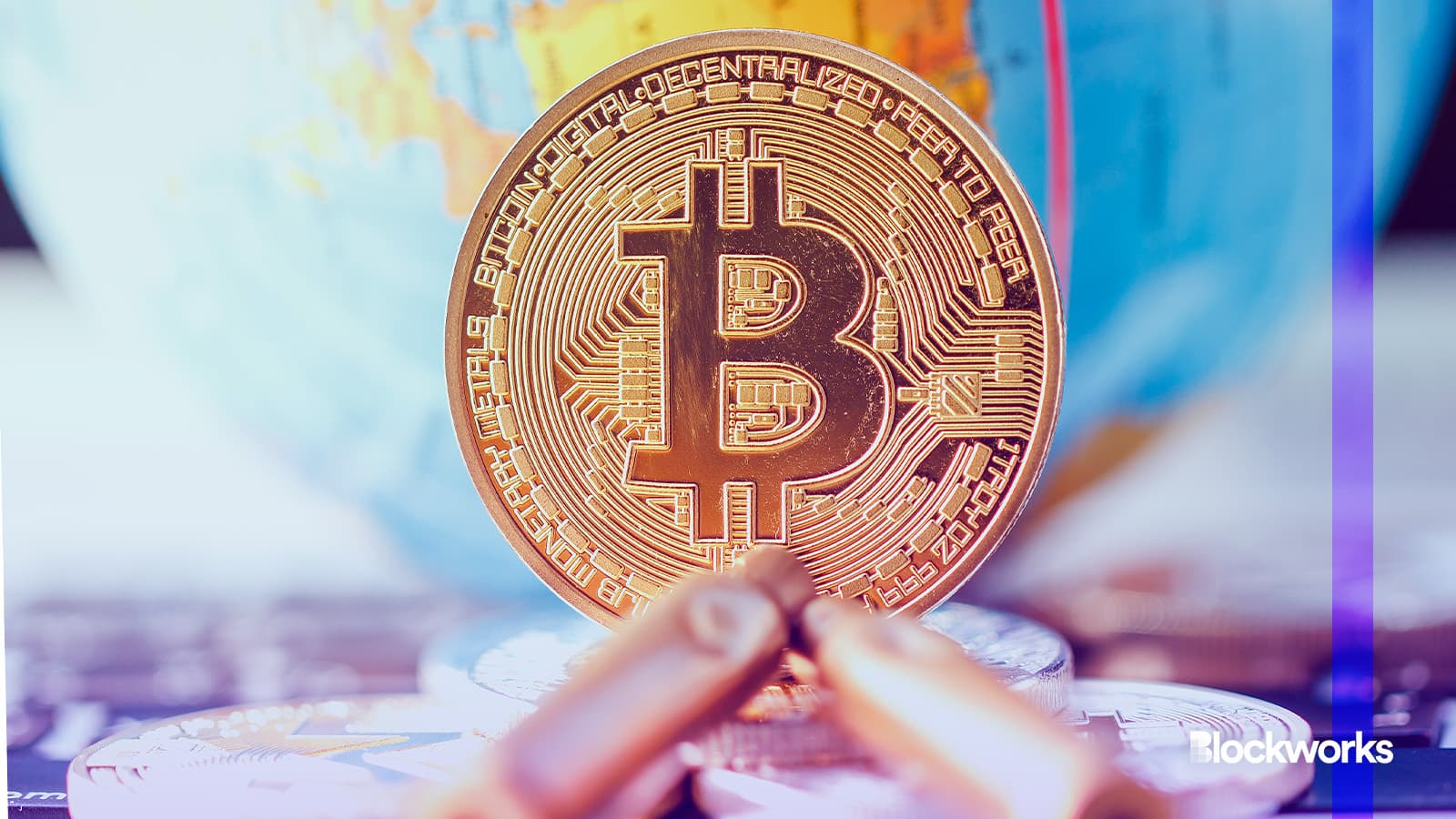Chainalysis calls for nuance when assessing crypto’s role in terror financing
Crypto terror financing is back on the agenda with politicians pointing to its use in the Middle East, though Chainalysis says the complexities run far deeper

TimeShops/Shutterstock modified by Blockworks
The renewed conflict between Israel and Hamas has raised fresh questions among global policymakers over the role of crypto in terrorist financing activities.
Authorities in Israel moved this week to freeze crypto accounts said to be used to solicit donations for Hamas. Crypto exchange Binance is said to have aided in the process.
Australia’s financial watchdog issued a warning about an alleged Hamas fundraising effort on Telegram. In the United States, lawmakers like US Senator Elizabeth Warren have demanded action on crypto-based terror financing.
Warren co-wrote an op-ed published Wednesday by the Wall Street Journal, renewing her call for tighter rules on crypto platforms.
The Journal this week also published a report on Hamas’ crypto fundraising, which suggested that such efforts helped fund its recent attacks on Israel.
Read more: Warren, Democrat lawmakers demand plan on crypto terror financing prevention
The attacks — resulting in the deaths of an estimated 1,400 Israelis, triggered new fighting between the Israeli military and Hamas in Gaza. Israel’s bombing campaign in Gaza has left more than 3,000 dead and more than 10,000 injured, according to Gazan health officials.
In an apparent effort to push back on some of the prevailing claims about crypto financing, blockchain analytics firm Chainalysis argued for a more nuanced approach in a new blog post.
“In order to measure the scale of terrorism financing in cryptocurrency and identify opportunities for disruption, investigators and other experts need to understand the role of service providers,” it said.
In examining confirmed cases of terrorist financing, intermediary entities like money service businesses frequently play a role. The transaction volumes processed by such intermediaries usually exceed those of individual participants, Chainalysis said, but are less than those handled by mainstream exchanges.
Read more: Israel freezes Hamas-linked crypto accounts used for donations
Tracking on-chain
Some of these service providers operate in a manner similar to over-the-counter (OTC) brokers, while others resemble traditional, street-level financial operations like hawalas, Chainalysis said.
The New York-based analytics firm said that by following the flow of funds on-chain, the data begins to take on a more complex form, particularly when an individual sends crypto to an address used by a service provider.
“To the untrained eye, it might appear that $82 [million] worth of cryptocurrency was raised for terror financing,” the firm said. “But it is much more likely that a small portion of these funds were intended for terrorist activity and a majority of the funds processed through the suspected service provider were unrelated.”
“Only the service provider knows which deposits and withdrawals are associated with specific customers, and that information is kept in their order books, which aren’t visible on blockchains or in investigative solutions,” Chainalysis wrote.
“It therefore is often not productive to continue following funds once they’ve been deposited at a service, as the owner of the funds isn’t usually the one moving them after that point.”
When a user transmits cryptocurrency to any type of service, that service amalgamates the incoming funds with the capital from other users, further distorting the derivation of funding.
In one example, Chainalysis showed that of the roughly $82 million one particular address had received, only around $450,000 worth of funds were transferred from a known terror-affiliated wallet.
“Given the activity of this address, the person or group of people controlling it is likely not the same person that controls the terror-affiliated wallet, but is rather a service provider that knowingly or unknowingly facilitated the terror financing activity,” the firm said.
Get the news in your inbox. Explore Blockworks newsletters:
- The Breakdown: Decoding crypto and the markets. Daily.
- 0xResearch: Alpha in your inbox. Think like an analyst.






